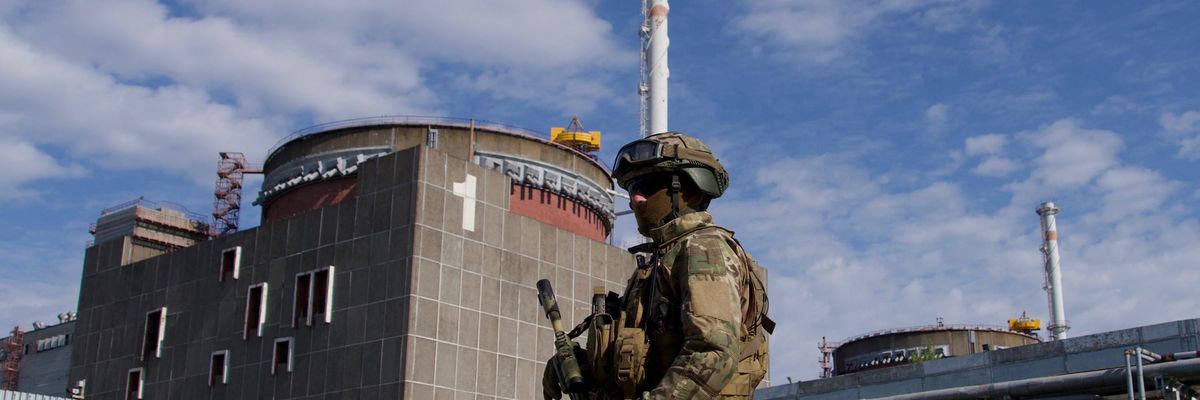Days after United Nations officials concluded on a long-awaited visit to the Zaporizhzhia nuclear power plant in southeastern Ukraine that the Russian-occupied facility has been "violated," Ukrainian President Volodymyr Zelenskyy said Sunday night that the Russian military is effectively using a "nuclear weapon" by continuing to control the plant.
Zaporizhzhia, which the Russians took over soon after invading Ukraine on February 24, is the largest power plant in Europe, and Zelenskyy compared the occupation to the Russians occupying "six Chernobyls," referring to the deadliest nuclear disaster in history.
"It means the biggest danger in Europe," Zelenskyy told "World News Tonight" on ABC Sunday evening. "So, they occupied it. So that is--means that they use [a] nuclear weapon. That is [a] nuclear weapon."
Zelenskyy's comments followed a long-awaited inspection of the facility by the International Atomic Energy Agency (IAEA), which demanded access to the plant amid weeks of shelling, for which Russian and Ukrainian officials have blamed one another.
The inspection revealed that the plant had repeatedly been disconnected from Ukraine's power grid for the first time in its history. Fires caused by the shelling have also damaged the plant's transmission lines, as Common Dreams reported late last month.
The damaged connections to power lines forced workers to use a lower-voltage reserve line to power equipment that cools the plant's reactors.
"In the U.S., the Nuclear Regulatory Commission would not allow a reactor to operate under those conditions for more than 24 hours," Edwin Lyman, director of nuclear power safety at the Union of Concerned Scientists, toldThe New York Times Monday.
The fighting has sparked fears of a nuclear disaster, and IAEA Director General Rafael Mariano Grossi warned last week that continued destruction to the "physical integrity of the plant... is something that cannot happen."
Valeriia Hesse, a Ukrainian nonproliferation expert, told the Bulletin of the Atomic Scientists Saturday that a disaster like the one that happened at Chernobyl in 1986 is unlikely at Zaporizhzhia because of differences in the plants' reactors, but "there is a high risk that an accident like that of the Fukushima disaster in Japan could occur" if shelling continues.
"In my view, the two most likely scenarios threatening the safety of [Zaporizhzhia] are projectiles hitting a spent fuel storage or the plant's cooling systems being damaged," said Hesse. "Another scenario is to blow up the machine room at the working power units, which is outside the containment building. However, the plant's staff has claimed to be prepared for such a scenario."
The IAEA said it was establishing a long-term presence at the facility, which is still being operated by Ukrainian workers as Russian forces occupy the plant.
"There shouldn't be any military personnel," Zelenskyy said Sunday. "There shouldn't be any military equipment on the territory. And there shouldn't be the workers of [the] nuclear power plant who are surrounded by people with firearms."
Ukrainian officials called on the IAEA to provide more information about the status of the plant as four of the six inspectors left Zaporizhzhia Monday.

